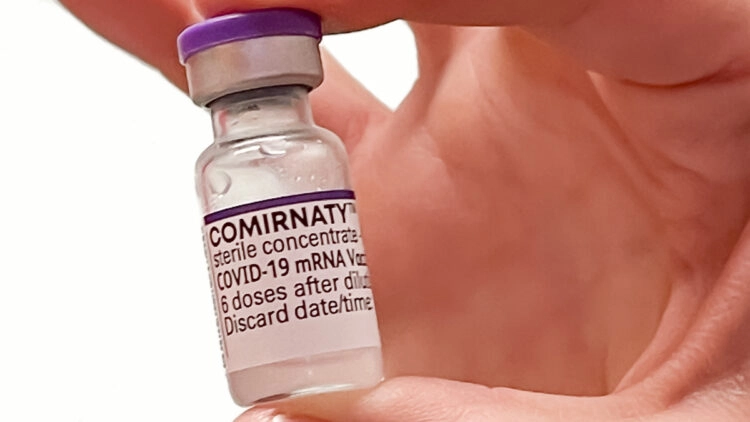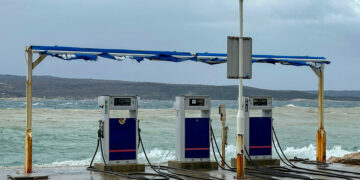With the exception of Italy, the coronavirus has the EU firmly in its grip: record 7-day incidence figures, particularly in Croatia, Slovenia and Austria, have forced the respective governments to take measures, some of them extremely restrictive, to contain the fourth wave of the COVID-19 pandemic. Anyone from Austria or Germany who now wants or needs to travel to the Adriatic is faced with a tangled web of regulations in which it is easy to lose track. We have summarized the relevant regulations for German and Austrian citizens that will apply from November 22, 2021. The good news in advance, however, is that anyone who has the appropriate vaccination protection and can produce a COVID-19 certificate has little to fear.
What applies to Austrians?
Beginning Monday, November 22, 2021, a nationwide “lockdown” will be in effect throughout Austria, which is only partially deserving of the term “lockdown” due to the numerous exceptions to the exit restrictions. Yacht owners and vacationers who want to travel from Austria to Croatia or Italy must first overcome the hurdle of exit restrictions in order to make the journey from their home town to the border.
Exit despite lockdown?
As of Sunday, November 21, 2021, the Austrian Ministry of Social Affairs provides the relevant argumentation on its homepage. According to it, exit restrictions do not apply in the case of averting an immediate danger to property, nor do they apply to staying outdoors for physical mental recreation. However, there is no experience yet on how the adopted measures will be implemented in real terms. Common sense says, however, that anyone who leaves Austria takes the pressure of infection out of the country, so there should probably be no difficulties here.
Re-entry Austria
As of Nov. 22, the 7th amendment to the COVID-19 entry regulation goes into effect. Upon entry, the 2.5-G detection is mandatory, antigen and antibody tests lose their validity from this date (so only PCR tests! ) with the exception of commuters and other groups of people. In general, however, the Pre-Travel Clearance should be completed.
Updating prescriptions
As often observed in the past, ordinances are issued in Austria, advertised in the media but ultimately not published on the Internet for citizens to understand because of the lack of ordinance text. This is again the case, some of the links lack the necessary topicality. Also, local peculiarities of each state should be taken into account in the regulation.
Re-entry to Germany
Anyone entering Germany from Croatia, Slovenia, or Austria comes from a high-risk area according to the RKI (Robert Koch Institute) and needs a digital entry registration and must go into quarantine if not vaccinated, tested or recovered. It further states, “Domestic quarantine may be terminated early if proof of recovery, proof of vaccination, or negative proof of testing is submitted through the Digital Entry Application upload portal. The individual link on the registration confirmation (PDF document) should be used to upload the proofs. The quarantine can be terminated in each case from the time of transmission. In plain language: the entry application must be filled in, whoever uploads the proof of vaccination, testing or proof of recovery, does not have to fear any further action.
Special case Italy:
Those entering Germany from Italy do not need an entry declaration or any proof, as Italy is not considered a risk area for German citizens.
Entry to Croatia, Slovenia, Italy
In addition to returning from Croatia, Slovenia or Italy, however, what is required for entry into these popular vacation countries is also relevant. After all, many yacht owners, vacation homeowners or simply friends of these countries want to escape the Corona stress in their home countries even during the mild winter months on the Adriatic Sea.
Entry Croatia
Travelers from Germany, Austria and the entire EU/EEA and Schengen area can enter Croatia without presenting a vaccination certificate a convalescent certificate or a test if they have an EU Digital COVID Certificate. Children under 12 years of age traveling with a parent/guardian are also exempt from presenting a negative test result or self-isolation if the parent/guardian can present a valid EU digital COVID certificate or a negative PCR or rapid antigen test, or has a vaccination or convalescent certificate.
EU COVID certificate helpful
On the ground, it is advisable to have an EU-COVID certificate, which is mandatory in Croatia for public institutions, banks (some), restaurants and even visiting the port captain.
Entering Italy
From the countries of the European Union, and therefore also from Germany, entry to Italy is allowed without quarantine, but travel within Italy may be restricted depending on the classification of the region, see restrictions in the country.
Declaration of Entry Italy
Entry must be declared via an online form. Only in cases where online registration is not possible for technical reasons, the entry declaration (in Italian) (the English language version serves only as a translation aid) can be submitted in paper form.
Documents for entry Italy
Travelers who have stayed only in countries of the European Union, and therefore also in Germany, as well as in Iceland, Liechtenstein, Norway, Switzerland, in the 14 days prior to entry, must present an EU Digital COVID Certificate (in Italy certificazione verde COVID-19) upon entry, containing one of the following three proofs:
- A negative test result (PCR test, not older than 72 hours, or antigen test, not older than 48 hours, children under six years of age are excluded), or
- A vaccination completed at least 14 days ago with an EMA-approved vaccine, or
- Evidence of recovery from COVID-19.
Entry Slovenia
Entry without subsequent quarantine into Slovenia is only possible upon presentation of a negative PCR test no more than 72 hours old or an antigen test no more than 48 hours old, a convalescent certificate, a vaccination certificate, a convalescent vaccination certificate, an EU digital or paper COVID certificate with QR code, or a third country digital or paper COVID certificate in English. Again, 3 G applies almost everywhere when entering the facilities, which is also strictly checked accordingly, even when entering the gas stations.
Summary Entry, Exit
To make a long story short: With the digital COVID certificate, which vaccinated, recovered or tested persons can show on their cell phones at any time, it is still possible to stay in Italy, Slovenia or Croatia with little national specifics. Regarding the departure from Austria to these states, the editorial staff has already made an inquiry to the Austrian Ministry of Social Affairs, which has so far remained unanswered. The answer will be provided in an update.













